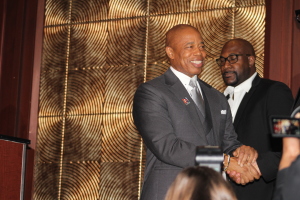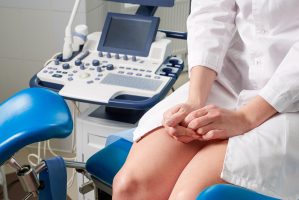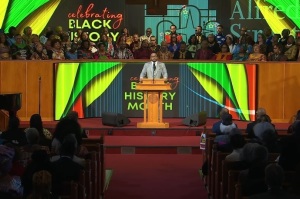Checks That Are Not Checks
Special Report #M004
Introduction
Have you paid by check at WalMart lately? If you have you know that when you gave them your check, then they gave it right back. You thought you had this checkbook stuff down. But now what? This caught me off guard the first time it happened.
Let’s continue to set the stage
Suppose you’re at a store (WalMart or a host of other stores) making a purchase and decide to pay by check—at least, that’s what you believe you’re doing.
The clerk asks you for a check that is completely filled out, partially filled out, or even blank. The clerk then runs the check through a machine and hands the voided check back to you with your receipt.
What just happened? Did you pay by check? Why did the clerk return the check to you? The answer is, you just experienced electronic check conversion.
The following questions and answers explain how electronic check conversion works and what your rights are as a consumer.
What is electronic check conversion?
Electronic check conversion is a process where your check is used as a source of information—for the check number, your account number, and the number that identifies your financial institution. The information is then used to make a one-time electronic payment from your account—an electronic fund transfer. The check itself is not the method of payment.
How will I know that my check is being used for electronic check conversion?
When you provide your check, you must be given notice that information from your check will be used to make an electronic payment from your account. The notice is required by the federal law that applies to electronic fund transfers—the Electronic Fund Transfer Act and the Federal Reserve Board’s Regulation E. Notice may be provided in different ways. For example, a merchant may post a sign at the register or may give you a written notice that you’ll be asked to sign.
What are some of the differences between electronic check conversion and using my check as payment?
• Your electronic transaction may be processed faster than a check. Be sure you have enough money in your account at the time you make the purchase.
• You have different consumer rights with an electronic check conversion transaction than when you use your check as payment. For example, with electronic check conversion, you have the right to an investigation by your financial institution when an error occurs.
What are my rights in electronic check conversion transactions?
• You have the right to receive notice when you provide your check telling you that information from the check will be used to make an electronic payment from your account.
• When you provide your check, you have the right to a notice telling you of any fee that the merchant will collect from your account electronically if you do not have enough money in your account to cover the transaction. This fee is similar to a “bounced check” fee.
You have the right to receive a receipt when you make a purchase at a store. The receipt will contain information about the transaction, including:
- Date
- Amount
- Location
- Name of merchant
• You have the right to have this same information included as part of the regular account statement from your financial institution.
• You have the right to ask your financial institution to investigate any electronic fund transfers from your account that you believe are unauthorized or incorrect.
What should I do if I have a problem with an electronic check conversion transaction?
Always review your regular account statement from your financial institution. You should immediately contact your financial institution if you see a problem. Were you charged the wrong amount? Were you charged twice for the same transaction? You have only 60 days (from the date your statement was sent) to tell the financial institution about the problem. Depending on the circumstances, the financial institution may take up to 45 days from the time you notify it to complete its investigation.
With electronic check conversion, may I use the same check more than once?
No. An electronic check conversion transaction is a one-time electronic payment from your account. If you were to use the same check for more than one transaction and you had a problem with one of the transactions, your financial institution might have difficulty investigating the problem because the same check number would appear more than once on your statement.
Can electronic check conversion occur if I mail a check to pay a bill?
Yes. For example, let’s assume that each time you get your insurance bill there is a notice. It tells you that when you mail a check, information from that check will be used to make an electronic payment from your account. If you then send a check, you have agreed to electronic check conversion. Unlike what happens when you make a purchase at a store, however, you won’t receive a receipt. Your check won’t be returned to you with your account statement from your financial institution because the transaction was processed as an electronic fund transfer, not as a check transaction.
As with electronic check conversions in stores, be sure you have enough money in your account when you mail your check, keep records of your payments, and check your account statements from your financial institution to make sure the amounts charged are correct.
What if I don’t want my check to be used for electronic check conversion?
If you don’t want your check to be used for electronic check conversion, you may have to provide another form of payment (for example, cash, debit card, or credit card).
Where can I get more information?
Contact your financial institution directly. For information on state laws that may apply to electronic check conversion, contact your state’s consumer protection agency or attorney general’s office.
Where can I file a complaint?
Contact:
Federal Trade Commission
Consumer Response Center
600 Pennsylvania Ave., NW
Washington, DC 20580
877-FTC-HELP — toll free (877-382-4357)
www.ftc.gov
Please also send a copy of your complaint to:
Board of Governors of the Federal Reserve System
Division of Consumer and Community Affairs
Washington, DC 20551
202-452-3693
www.federalreserve.gov
Remember . . .
Before you agree to electronic check conversion, you should first ask yourself
• Do I understand that the information from my check will be used to make an electronic payment from my account?
• Do I have enough money in my account to cover the payment?
Before you leave the store, you should ask yourself
• Did I receive a receipt?
• Does the amount on the receipt match the amount of my purchase?
• Was my check returned to me and voided?
When you receive your statement from your financial institution, you should
• Make sure that the charges on your statement match your records
• Contact your financial institution right away if you notice a problem.
________________________________________________
Bob Louder is the Founder and President of Christian Financial Ministries (www.good-steward.org). Bob is also the author of the new best selling book, “Debt Free Living God’s Way,” available only on the Internet (www.debtfreelivinggodsway.org). Since 1987 Bob has helped people in hundreds of churches all across the country and in the European military community learn, understand, apply and pass on “Debt Free Living God’s Way” principles and practical applications. He has represented some of the top Christian financial authors and ministries to include Larry Burkett, Dave Ramsey, Christian Financial Concepts, and Crown Ministries.
Copyright 2006 Christian Financial Ministries, Inc., All Rights Reserved. You may reprint this “Special Report” in whole or in part without permission from Christian Financial Ministries, Inc. Please credit material used to Christian Financial Ministries, Inc.





























